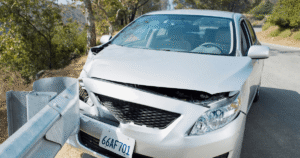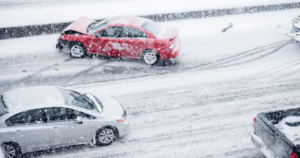 You may have heard people say that more accidents happen closer to home, but is that just a saying or is it a fact? If it is true, how can you help to prevent you and your loved ones from becoming a statistic?
You may have heard people say that more accidents happen closer to home, but is that just a saying or is it a fact? If it is true, how can you help to prevent you and your loved ones from becoming a statistic?
Pfeifer, Morgan & Stesiak discuss this decades-old saying and what you should know to protect yourself and others on the road.
If you are injured in a car accident due to the negligence of another driver, our knowledgeable South Bend car accident lawyers are ready to provide legal assistance and help you obtain the compensation you need. Our free consultation is a great way to get answers to your legal questions in a non-stressful way, since there is no obligation to hire our services.
Is the Statistic Fact or Fiction?
Progressive Insurance conducted the first survey to research where most accidents may happen. Although only 11,000 drivers were included in the study, the outcome was still astonishing. Findings revealed that 52 percent of motorists had an accident within five minutes of their homes and 77 percent had accidents within 15 miles of where they lived. Although this study occurred in 2001, newer research continues to support the original claim.
Why Do Accidents Happen Closer to Home?
Experienced drivers may be more vulnerable to an accident near home because of their familiarity with common roads, leading to less attention and vigilance. Along with lower guard on familiar roads, inexperienced drivers typically use neighborhood roads for training due to lower speed limits and fewer drivers. When sharing the road with new drivers, it is important to watch for erratic movements or sudden stops emphasizing attention to the road.
The National Highway Traffic Safety Administration (NHTSA), reported recently that not only do more accidents occur within a short distance of home, but they are often more serious. The NHTSA says that often when people are a short distance from home, they may not bother to buckle up, leaving them more vulnerable to the possibility of serious or fatal injuries if they are involved in a collision.
The Dangers of “Auto-Pilot” Driving
When driving on well-known routes, drivers may “zone out,” allowing their attention to drift away from the road. This state of mind, sometimes referred to as “auto-pilot,” significantly increases the risk of accidents.
Motorists that become overly accustomed to their usual routes, they may overlook potential hazards or fail to adjust their driving behavior according to changing conditions. For instance, a driver might not notice a small but crucial detail, like a new stop sign or a change in traffic patterns, because they are so used to how the road is setup.
Shorter Trips and Increased Risk
Similar to being over-comfortable on the road accidents are more frequent in short trips close to home due to a lack of vigilance on the road. Short trips often involve less planning and less defensive driving compared to longer journeys. Drivers might feel a false sense of security during short trips, leading them to engage in risky behaviors like speeding or neglecting to use seat belts.
Behavioral Factors and Risky Practices
Behavioral factors play a crucial role in accidents occurring closer to home. Drivers are more likely to engage in risky practices, such as speeding because they want to get home faster. This mindset can lead to a higher incidence of accidents, as drivers might become more relaxed about following traffic rules and maintaining safe driving practices.
Nighttime Driving and Other Risks
Another factor contributing to accidents near home is nighttime driving. The risk of accidents increases after 6 p.m. and before midnight, a time when drivers might be fatigued, distracted, or impaired on their way home. Late-night accidents often involve higher speeds and a greater likelihood of serious injuries, as drivers may not be as alert or cautious during these hours.
How Can You Avoid Having an Accident?
Preventing car accidents requires a combination of defensive driving techniques, maintaining constant awareness of your surroundings, and eliminating dangerous behaviors behind the wheel. The key to accident prevention lies in staying focused, following traffic laws, and anticipating potential hazards before they become emergencies. By adopting proactive safety measures and maintaining your vehicle properly, you can significantly reduce your risk of being involved in a collision.
- Stay Alert on Familiar Routes: Do not let comfort with neighborhood streets cause you to zone out or multitask while driving
- Reduce Speed in Residential Areas: Slow down on local streets where children, pets, and pedestrians are more likely to appear suddenly
- Watch for Children and Pets: Lookout for driveways, sidewalks, and yards constantly for kids playing or animals that might dart into the road
- Be Cautious Around Parked Cars: Watch for opening doors, people stepping between vehicles, and cars backing out of driveways
- Avoid Phone Use on Short Trips: Do not assume brief neighborhood drives are safe times to make calls or send texts
- Check Blind Spots Carefully: Navigate tight residential corners and narrow streets with extra caution due to limited visibility
- Drive Defensively Around Inexperienced Drivers: Expect unpredictable behavior from teen drivers and others who may be learning in your neighborhood
- Buckle Up for Every Trip: Wear seatbelts even for quick runs to local stores or short drives within your community
- Stay Focused Despite Distractions: Do not let thoughts about home, work, or errands take your attention off the road
What Should You Do If An Accident Happens?
If you are involved in an accident near your home or elsewhere because of another driver’s negligence, we strongly recommend that you remain calm and contact 9-1-1 for assistance. If the accident occurred near your home, calling a family member may provide comfort while you wait for the police to arrive.
Other steps that you should take to protect yourself and a potential claim:
- Check yourself and any passengers for injuries – do not move anyone unless it is necessary
- If you can do so without risking your safety or the safety of others, photograph the scene, road debris, vehicle damage and other evidence that may be helpful to establish fault
- Get information from other drivers and wait for the police to arrive
- Protect your health and seek immediate medical attention, even if you do not feel pain or see evidence of an injury
Learn How Our Attorneys May Be Able to Provide Legal Help
At Pfeifer, Morgan & Stesiak, we have years of experience handling car accident claims throughout Indiana. We have fought to hold at-fault parties accountable and recovered millions in compensation on behalf of our injured clients.
While no one can guarantee an outcome, statistically, injured victims who hire legal representation often recover larger settlements than those who do not. Find out whether you may have grounds to pursue compensation for your losses by contacting our firm today.
We offer a free consultation that carries no obligation to hire our services. If we take your case, there are also no costs to pay up front or while we represent you. We do not get paid until the legal case concludes, and only if we first recover compensation on your behalf.
Our firm is ready to provide the legal help you need. Call (574) 444-0741 today.




